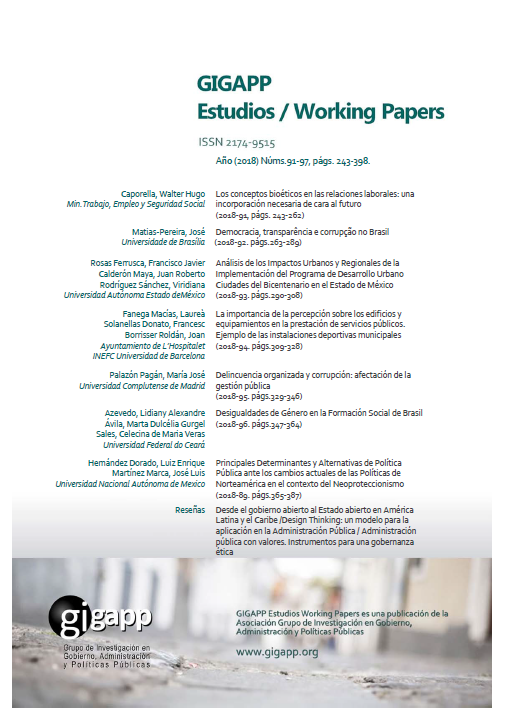Main determinants and alternatives of public policy in the face of current changes in North American policies in the context of neo-protectionism
Abstract
Currently, the main adverse determinants of market economies worldwide are due to the neo-liberal economic policy applied to the last years of the seventies, especially to emerging economies. Thispolicy works through the free flow of capital, commercial and financial deregulation, as well as the reduction of the state's participation in the economy. One of the variables that are influencing the real situation in Mexico is the reduction in the economic price in 2016 and 2017 has been the reduction in the price of oil, which is explained by the increase in the global supply of hydrocarbons as well as the slowdown in China and current changes in North American politics in a context of Neoprotectionism. In this sense, when development disappears, it is convenient that State and market cease to be exclusive to become complementary. In Mexico, with a selective industrial policy and a solid business commitment, growth can be resumed, as well as tackling social issues often relegated by the rules of globalization. As we are in the transition to a new economic policy regime of a universal nature that can lead to a disorder before offering its full benefits. Faced with this, the impact of international oil prices that remain at historical lows and the ex-change rate that has reached a historical maximum of 22 pesos, corresponding to the uncertainty of the current North American policy of neoprotection. However, the greatest risk for Mexico is the monetary policy that the Federal Reserve (FED) will follow in the near future regarding the level of reference interest rates of federal funds and the uncertainty in the economic policy of North America before the announcements of renegotiation or rupture of NAFTA in 2018.Therefore, Mexico's Medium-term Public Policy in the face of current changes in North American Policies in the context of Neoprotectionism will be addressed from Post Keynesian thinking. This establishes as long as the State does not regulate the economic activity of the market - which always remains in imbalance-, the levels of both national and international interest rates will continue to be maintained, with a direct impact on the financing of productive investment, thereby limiting the long-term economic development especially from emerging countries.
Downloads
Copyright (c) 2018 Luis Enrique Hernández Dorado, José Luis Martínez Marca, Dr.

This work is licensed under a Creative Commons Attribution-NonCommercial-ShareAlike 4.0 International License.
Those authors who have publications with this journal, accept the following terms:
a. Authors will retain their copyrights and guarantee the journal the right of first publication of their work, which will be simultaneously subject to the Creative Commons Attribution-NonCommercial-ShareAlike 4.0 International (CC BY-NC-SA Recognition License). 4.0) that allows third parties to share the work as long as its author and its first publication are indicated in this journal.
Under this open access license, readers (users) can:
- Share — copy and redistribute the material in any medium or format
- Adapt — remix, transform, and build upon the material
Under the following terms:
-
Attribution — Users must give appropriate credit, provide a link to the license, and indicate if changes were made. You may do so in any reasonable manner, but not in any way that suggests the licensor endorses you or your use.
-
NonCommercial — Users may not use the material for commercial purposes.
-
ShareAlike — If remix, transform, or build upon the material, users must distribute your contributions under the same license as the original.
- No additional restrictions — Users may not apply legal terms or technological measures that legally restrict others from doing anything the license permits.
b. Authors may adopt other non-exclusive license agreements for the distribution of the version of the published work (eg: deposit it in an institutional telematic archive or publish it in a monographic volume) provided that the initial publication in this journal is indicated.
c. Authors are allowed and recommended to disseminate their work through the Internet (e.g. in institutional telematic files or on their website) before and during the submission process, which can lead to interesting exchanges and increase citations of the published work. (See The effects of open access).



